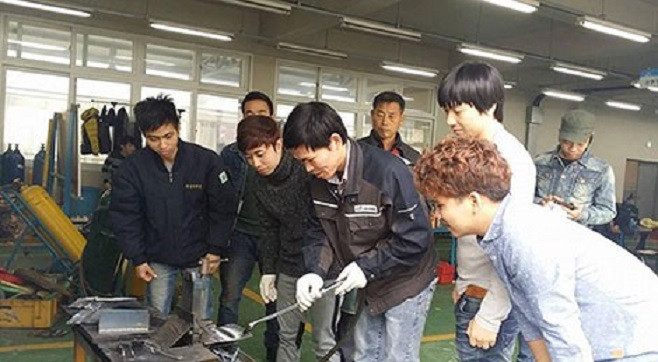
According to the MoLISA's Centre of Overseas Labour, there has been a rise in the number of Vietnamese workers not returning from South Korea after using the Employment Permit System (EPS) programme.
By October 2023, over 36,000 Vietnamese were working in South Korea under the EPS, including over 10,000 workers whose contracts had already expired, the centre said. They work in industries like manufacturing, construction, agriculture and fisheries with average monthly salaries of between VND36-40 million.
More than 127,000 workers have travelled to South Korea for work since the EPS was launched in 2004.
Besides South Korea, a large number of Vietnamese have also been found working illegally in Taiwan and Japan since 2020 when the Covid-19 pandemic prevented them from returning home after their contracts ended.
Statistics from the ministry showed that a total of 712,607 Vietnamese people are working overseas including 46,677 or six percent working and overstaying. Most of the illegal workers are in Asian countries with the highest number of them in South Korea, followed by Taiwan, and Japan.
Speaking about the situation, deputy head of the MoLISA's Department of Overseas Labour, Nguyen Gia Liem, said the rate of illegal workers had risen this year as the number of workers going abroad increased and production levels had returned to normal.
"We've worked with the South Korean authorities on measures to resolve the issue, such as by imposing recruitment restrictions on businesses that hire workers who have overstayed, or by issuing fines of between VND80-100 million per illegal worker," he said. "South Korea also will consider adjusting the yearly recruitment quotas for countries with high numbers of illegal workers."
To curb the problem, the head of the Department of Employment, Vu Trong Binh, suggested there should be policies and measures to help the workers find suitable work when they return home.
"Authorities should consider increasing the lengths of the contracts from the current three years to five years so that workers can save more," Binh said. "I think this would also help reduce the number of workers absconding."
Source: Dtinews